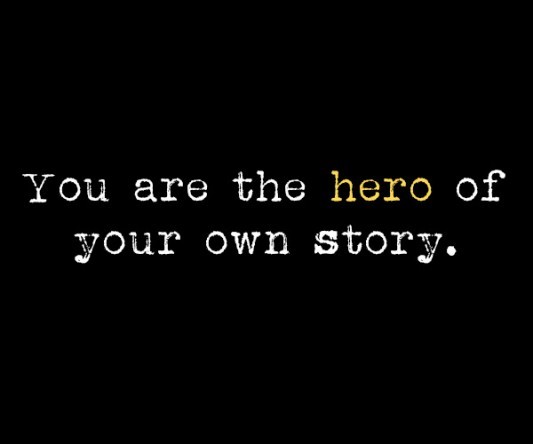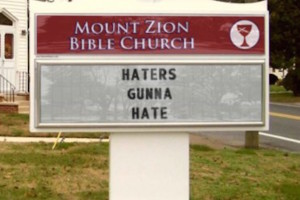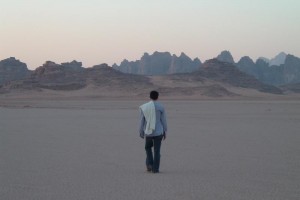Let me say, by way of full disclosure, that this will not be an exploration of American Exceptionalism when it comes to foreign policy decisions. While I do believe that what I have to say is a reason why a larger version of American Exceptionalism exists, I don’t think what I am talking about is limited to the United States, per say. It seems to be a broader, more all inclusive, 21st century ailment.
We have been conditioned by society to think that we are exceptional people. By exceptional here, I mean that we believe we are the exceptions to the rule; that we are the diamond in the rough, the hero of a story in which the camera is always centered upon us. In essence, this means that we often believe that we are the exceptional heroes of a story destined to end well (and by this I mean that we think we are entitled to a story that ends well; this is not to say that no one will have a story that ends well; rather, it is simply arguing that we are not inherently entitled to have stories that end in this way). This belief is, for all intents and purposes, an illusion. That being said, how did we arrive at this place as a culture?
From early childhood, we are bombarded with advertisements that claim that if we choose to purchase a certain product, if we are loyal to a certain brand, it will make us exceptional and unique. And yet if everyone watching these commercials were to purchase these products for this reason, then everyone would own said product and owning that product would cease to make you exceptional or unique. This paradox doesn’t stop in high school with designer jeans and name brand breakfast cereals. It continues well into adulthood with cars, daily vitamin supplements, and investment management firms, all telling you that if choose them, your life will be better and more exceptional than Tom and Mary down the street.
Exceptionalism is, interestingly enough, cleverly illustrated through the rise in popularity of the post-apocalyptic stories in film and television, specifically, the growing prevalence of the zombie apocalypse survivor narrative. Countless people watch shows like The Walking Dead or movies like World War Z and project themselves into these zombie narratives as the one of the heroic few who have managed to survive death tolls of bubonic proportions. In other words, while we watch, we identify with the survivors, so much to the point, that we think that if they were in a similar situation, in which a virus broke out that turned 93% of the world’s population into a mindless brain eating horde, we would be part of the 7% who would survive. In reality, the majority of the people watching these narratives are much more likely be zombies than the few people left alive to kill them.
You know that feeling you get when you’re watching your favorite show and things are getting dicey for the protagonist? You usually comfort yourself by saying that though things may get bad, even downright scary, the character(s) you are following aren’t going to die (which would be, for the protagonist the worst possible outcome, since it would mean the end of the POV of that narrative). That feeling, that reassurance is a symptom of the illusion of exceptionalism that frames the ways in which we encounter narratives. While this move, as a function of most traditional fictional narratives, may oftentimes be true, it is not, in fact, an aspect of reality that was imported into fiction to make stories feel more “real”. The preservation of the life of the protagonist at all costs is actually a maneuver of fiction that we then transpose onto the everyday experiences of our own lives.
For example, when we see a car accident on the side of the freeway, we see those people as expendable characters in a film that’s all about us. They exist to provide a backdrop for the scene in our stories where we’re trying to get to work on time and the traffic caused by those people’s inability to avoid the person’s bumper in front of them is preventing us from making a good impression on your boss. Once we pass them, these people cease to have any function other than what they were there in the previous scene. What we don’t often think about is the fact that for those people standing on the side of the road exchanging driver’s license numbers and insurance information, we are actually a stock character among hundreds, driving by, seemingly oblivious to the chaos that’s currently unfolding as they wait for the highway patrol officer to arrive.
If events in life are not revolving around us in a specific, coherent narrative in which we are the hero then how do we make sense of what we see? I would propose the image of the matrix of choice as a stand in for the “choose your own adventure” model. At the end of the day we are essentially the sum of a multitude of choices; some ours, some others. Our own choices are easy enough to reconcile (though talk to any addict and they’ll tell you how hard it can be to control your choices), it’s the choices of others that seems to feel unfair or problematic to our idea of being the hero of our own particular narratives. Why should we have to be affected by the choices of others? Doesn’t that negate free will? In fact, this ripple affect is the direct result of free will. If we all have free will, then all the choices we make must affect change in the world. These changes cannot necessarily be confined to affect only the person making the decision.
For example, the person with a flat on the side of the freeway may not be there because they made a poor choice and therefore deserve to be there. Someone two days prior may have made the choice to not close the box of nails they placed in the back of their pickup truck, thereby allowing for a nail to be flung onto the hot blacktop of the freeway, which in turn, ended up in the tire of the person stuck on the side of the road waiting for AAA to show up. If this “butterfly effect” theory rings true in light of our daily experience, then it seems as though we exist within a matrix of choices. This would make all of us nodes in a pulsating, ever-changing network of causes and effects.
Some may see this and say that the implication is that everything is random and that God does not exist. That’s not necessarily what this means. Every choice is exactly that: a person making an intentional decision or non-decision. One may not know who that choice effects or how, but it is by no means random. Those who find comfort in seeing the collective choices of others as Fate would be right, if they’re speaking of Fate as a metaphor for what being within the matrix of other’s choices feels like. If they’re thinking of Fate as a singular driving force that’s controlling every aspect of the universe, they are mistaken. The choices of others are not a result of a single motivation; rather, they are a composite of many motivations and many different choices. These choices are decisions made out of the depths of our free will, for better or for worse. As for the existence of God, I don’t see a problem with a divine being (a divine will, you might say) existing as one of the choosers (a chooser with a vast array of knowledge, power, preeminent vision, etc.) within this matrix of choices that we exist in. That being said, in this model, our choices would actually exist alongside the choices and will of God in order for free will to be maintained.
And so, the idea that we are exceptional heroes of a story destined to end well (and by this I mean that we are entitled to a story that end well; that’s not to say that no one will have stories that end well; rather that we are not inherently entitled to have stories that end in this way) is an illusion. What is not an illusion is that the choices we make affect the world and people around us, and vice versa in ever expanding concentric rings, as he world becomes smaller and smaller with the effects of globalization make their mark on transportation, communication and individual influence. This means that both you and the stranger are in the same boat. Neither of you are more deserving of anything than the other. This could, if we let it, create for us a ethic of mutual conviviality that arises from the idea that we’re all in this together and that the choices we make affect the lives of everyone we have to live in concert with.





Leave a Reply
Your email is safe with us.